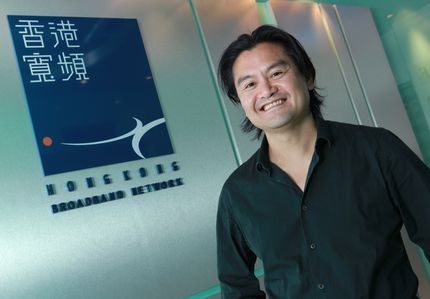
Firms must innovate to celebrate success
At a first glance, Hong Kong has done well in the World Economic Forum's latest ranking for innovation. The WEF Networked Readiness Index 2014 released last month, saw Hong Kong leap to eighth position in the world, from its 2013 ranking of 14th. Meanwhile, Singapore maintained its position as number two globally. Asian regions often perceived as more innovative than Hong Kong - South Korea, Taiwan and Japan – ranked 10th, 14th and 16th respectively.
However, Richard Kelly, chief catalyst at Fung Academy and managing director of innovation agency IDEO Asia Pacific, says these rankings do not mean much.
Instead, Kelly says that what matters most is what Hong Kong is doing to transition from a service to a knowledge economy, since more than 90 per cent of GDP is generated by services. He made his remarks at a forum entitled “Innovation in Action” at the University of Hong Kong last week.
Innovation and upgrading the service economy are issues that Singapore studies closely, Kelly said, frequently observing the example of Switzerland, a success story in evolving from an advanced service economy into a knowledge one.
Innovation readiness, or other measurements of the entrepreneurial spirit, should be evaluated based on individual experiences, Kelly said.
He gave as an example his personal experience with HSBC, a large service organisation with a globally recognised brand. Kelly said he was surprised that, in a digital age, he had to write a letter to HSBC to ask for a statement that was more than three months old.
“Where is the knowledge inside that organisation?” he asked. “If they've got every piece of my data, what is making them not able to have that available? … There is knowledge there that they know about me and they can't figure that out.”
When organisations actively innovate, they need a balance between incremental improvements and revolutionary, game-changing innovation, Kelly said. He suggests adopting an openness to experimentation, to overcome the fear of failure that is common in Asian culture and yet so essential to revolutionary innovation.
“There is very little R&D in the service industry, so where do new ideas come from?” he asked, using Shanghai's free trade zone as an example. “It's a bold step. They don't actually know what is going to happen.”
At a company level, innovation is encouraged in Hong Kong companies by fostering the right culture and providing suitable incentives, said Lai Ni Quiaque, of Hong Kong Broadband.
Lai holds the position of head of talent engagement and CFO, a rare combination of the human resources and financial functions in a large company.

Lai Ni Quiaque is the CFO of Hong Kong Broadband.
He said that senior management of Hong Kong Broadband are offered the chance to invest in the company. These employees actually receive the job title of “co-owners”, but risk losing it if the company’s performance suffers. This differs from the practice in most large companies of offering stock options, where there is no downside.
Lai said it is also important to allow innovative ideas to flourish as long as there is a business case behind them. He said R&D in his company is not limited by a strictly defined budget. Instead, it is integrated within the business.
“We know that 30 per cent of our contract revenue comes from physical acquisition channels. If we can reduce that cost, if we can innovate using online channels, that goes towards innovation,” Lai explained.
Meanwhile, from an investor's point of view, it is important to support the growth of start-ups but not provide too much funding too soon, said Carina Ho, senior vice-president, global strategy and development, of Schneider Electric.
Ho oversees the company's venture capital funds which finance start-ups in energy and environment technology. She highlighted the importance of keeping the start-up founders' entrepreneurial spirit alive.
“You have to keep them hungry,” she said. “If you turn them into salary earners, it doesn't work.”
